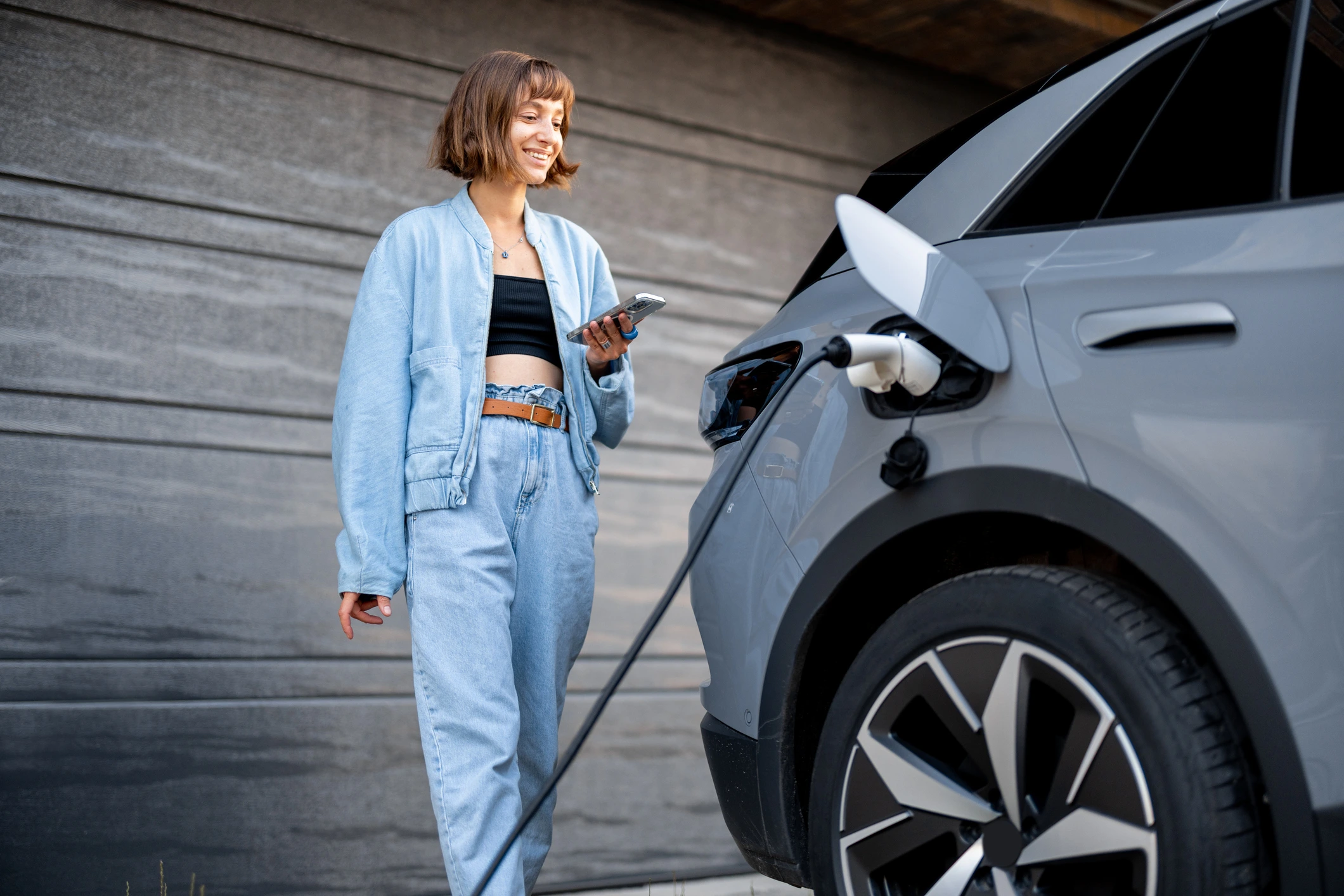May 2025
How long does it take to fully charge an electric car?
Find out how long it takes to fully charge your electric vehicle before you make the jump to electric.

If you’re new to the world of electric vehicles (EVs), one of the most important things you need to know is how long they take to charge. While a manufacturer may quote a specific amount of time, this is typically how long it would take for an EV battery to charge from 0-80%, and, in reality, many factors can affect charging speed and how long it actually takes for your EV battery to be fully charged.
To help you understand the everyday dynamics of EV battery charging, we take a look at how battery capacity, charger power, and other elements affect an electric vehicle’s charge time. Once you understand this important information, you’ll be ready to hit the road with a properly charged EV.
Summary
Assuming a 60 kW EV battery and a standard 7 kW charger, charging an EV will take approximately 8.5 hours.
However, the amount of time it can take to charge an EV can vary. The recharge time is affected by the following factors:
- Battery size
- State of charge
- Type of charger
- Battery acceptance rate
- Charger network load
- Temperature
- Battery pre-conditioning
Electric car charging speed calculator
If you’re wondering roughly how long it will take you to fully recharge an EV battery, here is a formula that you can use:
Battery Size (in kWh) / Charger Power (in kW) = Hours to Charge
For example, let’s say you have a Tesla Model Y with a 60 kWh battery connected to a slow 3.6 kW EV charger. Here’s what the calculation would look like:
60 kWh / 3.6 kW = 16.7 hours to charge
However, it’s important to remember that this is just an estimated value and that your real-world charge time may be slightly different.
What affects the charging time for an electric car?
Knowing the numbers is helpful, yet real-world charging often doesn’t match the theoretical maximum.
These are eight factors that will affect how long it takes to charge an electric car:
- Battery size: As with any storage medium, smaller batteries take less time to charge while larger batteries take longer.
- State of charge (SoC): Not only does the current amount of charge in a battery affect its charging time, but charging to 80% is much quicker than charging to 100%. This is because the battery management system limits the charging speed above 80% to preserve the health of the battery’s cells.
- Type of charger: According to ZapMap, there are three levels of chargers in the UK. Slow chargers, fast chargers, and rapid and ultra-rapid chargers. Slow chargers provide a charging rate of 3–6 kW. Fast chargers provide a charging rate of 7–22 kW. Rapid and ultra-rapid chargers provide a charging rate of 50–350 kW.
- Battery acceptance rate: Your car battery acceptance rate limits the maximum charge a battery will draw from a charger. For example, if you plug a 100 EV with a 100 kW acceptance rate into a 350 kW charger, the EV battery will not exceed the maximum acceptance rate of 100 kW.
- Charger network load: A charging site can only reach its peak rate if sufficient grid capacity is available and if all of the charging units are not drawing a large amount of power. Also, a charging unit can sometimes split its output between two cars, halving the charging speed for each EV.
- Temperature: According to EV Engineering & Infrastructure, lithium-ion batteries have an optimal charging temperature between 15–35°C. Reduced temperatures make the electrochemistry of the battery sluggish, while high temperatures increase the rate at which the electrochemistry of the battery breaks down, both of which affect charging times.
- Battery pre-conditioning: Many new EVs can heat or cool the battery to a target temperature, ensuring a higher charging rate and shorter charging times than a battery that isn’t pre-conditioned.
How fast do electric cars charge?
Now that you understand the different factors that can affect the charging speed of an electric car, we’re ready to take a closer look at each of the different environments and chargers you’ll typically find below so you can answer the question, “How long does it take to charge an electric vehicle?”.
For each of these examples, we’ll assume that the EV has a 60 kWh battery.
Electric car charging speed at home
If you’re charging your car at home, you’ll typically be using one of three methods: a three-pin plug (2.3 kW charging speed), a home EV charger (7 kW charging speed), or a three-phase home EV charger (11–22 kW).
Here’s a more detailed breakdown of each of these types of chargers:
- 2.3 kW three-pin plug: A 60 kWh battery needs more than 24 hours to recharge from 0–80% with a three-pin plug. In addition to extremely slow charging, these plugs are typically not designed to charge EVs for long periods. Using this charger for an extended time could cause the cable to overheat, potentially leading to a fire. Due to these safety concerns, you should only use a three-pin plug in an emergency.
- 7 kW home EV charger: A 60 kWh battery needs roughly 8.5 hours to recharge from 0-80%. This is the most common charging solution for EVs at home since they are easily integrated into the existing electrical system. This value will help most people answer the question “How long does it take to to charge an electric car with a 7 kW charger?” since this is one of the most common ways to charge your vehicle at home.
- 11–22 kW three-phase home EV charger: A 60 kWh battery needs roughly three to six hours to recharge from 0-80%, depending on whether the charger is rated for 11 kW or 22 kW. This category of EV charger is less common because it requires a three-phase power supply.
Charging at home offers the most cost-effective rate, depending on your tariff and whether you have solar panels installed.
Electric car charging speed in public
If you’re wondering “how long to charge an electric car at a charging station in public?”, ZapMap’s EV charging statistics for 2025 share that many different types of EV chargers are available in public locations. These include on-street chargers, chargers at hotels, and high-powered en-route chargers.
The majority of these are slower than 8 kW, but the number of 8–50 kW, 50–100 kW, and faster than 150 kW chargers continues to increase.
If you’re considering charging in public, most on-street EV chargers offer speeds of 3 kW, 5 kW, or 7 kW. If you’re looking for some faster charging solutions, some supermarket car parks offer 7 kW, 22 kW, or up to 100 kW chargers. Motorway services prioritise rapid 50 kW and ultra-rapid units 150 kW or higher chargers to help drivers do quick top-ups mid-journey.
Again, assuming a 60 kW battery, you can expect charging times of between 20 hours and 30 minutes, depending on the type of public charger you use.
Charging using public charging points is more expensive than charging at home, with prices varying depending on the speed of the chargers available.







%202.webp)
